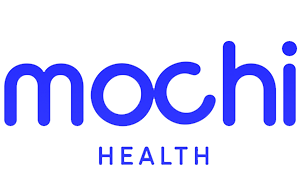In recent years, the medical field has witnessed a revolutionary shift in weight management solutions, and Ozempic has emerged as one of the most effective medications for tackling obesity. Originally developed for managing type 2 diabetes, Ozempic’s powerful weight loss effects have catapulted it into the spotlight as a dual-purpose medication. With growing curiosity about oral alternatives and pills like Ozempic, let’s explore the possibilities and nuances of these treatments, including insights into Wegovy and the promising future of weight-loss medications.
Overview of Ozempic
Ozempic, created by Novo Nordisk, is a once-weekly injectable medication that has proven highly effective for managing type 2 diabetes and promoting weight loss. Its active ingredient, semaglutide, works as a GLP-1 receptor agonist (glucagon-like peptide-1). This means it mimics a hormone that naturally regulates blood sugar, slows digestion, and signals the brain to reduce appetite.
For individuals with type 2 diabetes, Ozempic helps control blood sugar levels, reduces cardiovascular risks, and provides an added bonus: weight loss. In fact, its efficacy in weight management has been so significant that it has gained off-label use for this purpose. To cater to weight loss specifically, a higher-dose version of semaglutide called Wegovy was developed and FDA-approved as a dedicated obesity treatment.
Despite its growing popularity, one common concern about Ozempic and Wegovy is their injectable form, which some users may find inconvenient or intimidating. This has led to widespread interest in oral alternatives, such as Rybelsus, an oral form of semaglutide.
Is There a Pill Version of Ozempic?
The short answer is: not yet—but there’s a close contender.
While Ozempic remains available only as an injectable, Novo Nordisk has developed an oral version of semaglutide called Rybelsus. Rybelsus is the world’s first GLP-1 receptor agonist in pill form, designed to provide the same benefits as Ozempic but without the need for injections.
However, there’s a caveat. Rybelsus is currently approved for managing type 2 diabetes only, not for weight loss. Its dosing and regulatory approval are focused on blood sugar control rather than appetite suppression or weight management.
Despite this, Rybelsus contains the same active ingredient as Ozempic, and anecdotal evidence suggests it may lead to some weight loss in users. The medication’s potential as a weight-loss pill is under active research, and future developments could see its approval for broader applications, including obesity treatment.
For now, individuals seeking significant weight loss through semaglutide will need to rely on injectable options like Ozempic or Wegovy.
Do Ozempic Pills Work for Weight Loss?
The effectiveness of semaglutide for weight loss has been extensively proven in injectable forms like Ozempic and Wegovy. Clinical studies demonstrate that patients using these medications can lose up to 15% of their body weight over a year when combined with lifestyle modifications such as a healthy diet and exercise.
However, whether an oral version like Rybelsus could deliver similar results remains. While Rybelsus shares the same active ingredient, its weight-loss efficacy has not been rigorously studied or approved. Anecdotal reports suggest that some users do experience moderate weight loss while taking Rybelsus for diabetes management, likely due to its appetite-suppressing properties.
It’s important to note that weight loss with Rybelsus, if it occurs, may not be as dramatic or consistent as with injectable Ozempic or Wegovy. The main differences lie in the dosage strength and the way the body absorbs the medication when taken orally versus injected. Injectable medications allow for higher bioavailability, meaning more of the drug is effectively used by the body.
If you’re considering using Rybelsus for weight loss, it’s essential to consult your healthcare provider. They can assess whether an off-label use of the medication is appropriate for your individual health goals and circumstances.
Our Recommended Weight Loss Medication Program

How Much Weight Can I Lose on Ozempic in a Month?
When using Ozempic or Wegovy injections, the amount of weight you can lose in a month varies depending on several factors, including:
- Dosage: Higher doses, such as those found in Wegovy, tend to result in more rapid and significant weight loss.
- Lifestyle Changes: Combining medication with a calorie-controlled diet and regular exercise enhances results significantly.
- Individual Differences: Factors like age, metabolism, medical history, and adherence to the treatment plan affect how much weight you’ll lose.
Clinical Trials and Results
In clinical trials, participants using Ozempic or Wegovy reported losing between 5-10 pounds in the first month. Over the course of a year, weight loss averaged around 12-15% of total body weight, with some individuals achieving even greater results.
It’s important to remember that sustainable weight loss takes time. The gradual nature of the results with Ozempic and Wegovy is one of their key benefits, as it allows patients to adapt to healthier eating habits and maintain long-term weight management.
What Weight Loss Pill Is Like Ozempic?
While no pill is currently marketed as a direct weight-loss alternative to Ozempic, Rybelsus is the closest option. Rybelsus contains the same active ingredient, semaglutide, and offers similar benefits for diabetes management, including appetite regulation and potential incidental weight loss.
Key Differences Between Rybelsus and Ozempic/Wegovy:
- Approval: Rybelsus is approved for type 2 diabetes, not weight loss.
- Dosage: Injectable options like Wegovy are available in higher doses specifically designed for obesity treatment.
- Efficacy: Injectable forms allow for greater bioavailability, making them more effective for significant weight loss.
While Rybelsus may not yet rival Ozempic or Wegovy in terms of weight-loss efficacy, it represents a step forward in the development of oral GLP-1 receptor agonists. Ongoing research into oral medications for obesity treatment suggests that more options may soon become available.

Ozempic vs. Wegovy: Which Is Right for You?
Both Ozempic and Wegovy offer life-changing benefits for individuals struggling with obesity or type 2 diabetes, but they are tailored to different needs:
- Ozempic: Primarily for diabetes management, with weight loss as a secondary benefit. Lower doses make it suitable for patients looking for moderate weight loss alongside blood sugar control.
- Wegovy: Specifically designed for weight management, with higher doses of semaglutide optimized for significant weight loss.
Both medications require weekly injections and work best when combined with healthy lifestyle changes. Consulting a healthcare provider can help determine which option aligns with your health goals.
Future of Oral Weight Loss Medications
The success of Rybelsus has paved the way for the development of oral medications that could match the efficacy of injectables like Ozempic and Wegovy. Pharmaceutical companies are actively researching new formulations and delivery methods to make weight-loss medications more accessible and convenient.
As the science of GLP-1 receptor agonists evolves, we expect to see advancements in oral medications that offer similar benefits to injectables without sacrificing effectiveness. This would be a game-changer for individuals hesitant about injections or seeking easier options for long-term treatment.
Conclusion: The Potential of Ozempic Pills for Weight Loss
Ozempic and Wegovy have revolutionized weight management, offering effective solutions for obesity and related health conditions. While no pill version of Ozempic exists specifically for weight loss, Rybelsus provides a glimpse into the future of oral treatments.
For now, injectable Ozempic and Wegovy remain the most reliable options for significant weight loss, with Rybelsus serving as a promising alternative for diabetes management. If you’re considering these medications, it’s essential to consult with a healthcare provider to determine the best treatment plan based on your goals and medical history.
The future of weight-loss medications looks bright, with ongoing advancements promising more accessible and versatile options. Staying informed and working closely with healthcare professionals will ensure you make the best decisions for your health and well-being.

Can Personalized Care Enhance Your Weight Loss?

The Digital Age of Weight Loss Prescriptions
FAQ
- What is Ozempic and how does it help with weight loss?Ozempic (semaglutide) is a prescription medication primarily used for managing type 2 diabetes, but it has also been found to aid in weight loss. It works by mimicking a hormone that regulates appetite and food intake, leading to reduced hunger and potential weight loss when used alongside diet and exercise.
- How do I know which weight loss medication is right for me?Choosing the right weight loss medication involves considering various factors, including your specific health conditions, weight loss goals, and any potential allergies or sensitivities. It's essential to consult with a healthcare provider who can assess your individual needs and prescribe a medication that aligns with your health objectives. Our platform provides access to expert consultations to help you make an informed decision.
- Are the weight loss medications offered on your platform FDA-approved?Yes, all the weight loss medications featured on our platform are FDA-approved. We prioritize safety and efficacy by offering only those products that have undergone extensive clinical trials and meet stringent regulatory standards. This ensures that our users receive the most reliable and effective treatments available.
- How do I choose the best weight loss medication for my needs?Selecting the right weight loss medication involves understanding your health history, weight loss goals, and any existing medical conditions. It's essential to consult with a healthcare provider who can evaluate these factors and recommend the most suitable medication. Our platform also provides resources and access to specialists to help guide your decision.




